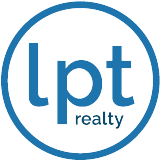How Much Money Do I Need to Buy a Property?

How Much Money Do I Need to Buy a Property?
Buying a property is a crucial financial decision that requires meticulous planning.
One of the key aspects is understanding how much money you need to complete the purchase. In this blog, we'll explore the associated costs in detail and offer strategies to save and prepare financially.
Costs to Consider
Down Payment
The down payment is the amount of money you need to pay out of pocket when purchasing the property. It's usually expressed as a percentage of the sale price, typically ranging from 3% to 20% of the property's price.
For example, if you're buying a house for $200,000 and the required down payment is 20%, you'll need $40,000.
Closing Costs
In addition to the down payment, there are closing costs, which are the expenses associated with the process of transferring the property from one owner to another. These include appraisal fees, inspection fees, legal fees, and registration fees, typically ranging from 2% to 5% of the sale price.
Mortgage Loan Expenses
If you're obtaining a mortgage loan to buy the property, it's important to consider the expenses associated with the loan.
Emergency Reserve
When buying a property, it's wise to have an emergency reserve. This is additional money set aside to cover unexpected expenses related to the property, such as major repairs, immediate maintenance, or even income loss. Ongoing responsibilities as a property owner.
It's recommended to have at least 3 to 6 months' worth of housing expenses in reserve.
Ongoing Property Costs
In addition to the initial costs, it's important to consider the ongoing costs of property ownership. This includes the monthly mortgage payment (if you have one), property taxes, homeowner's insurance, homeowners' association fees (for properties in a community), utilities, and maintenance and repair costs.
Property Taxes
These are annual taxes based on the assessed value of the property.
Home Insurance
Mandatory with a mortgage to protect against damage.
Saving for Your Down Payment
The down payment can be a challenge, but with these tips, you can better prepare:
- Set a Budget: Monitor income and expenses to identify areas where you can save.
- Increase Your Income: Consider side jobs or salary increases.
- Reduce Your Debt: Pay off high-interest debt to improve your financial profile.
- Optimize Your Savings: Use high-yield savings accounts for long-term growth.
Additional Considerations
In addition to the basic costs, other key factors to consider are:
- Personal Financial Situation: Affects your ability to obtain a mortgage and the interest rate.
- Local Real Estate Market: Prices vary depending on the property's location.
- Housing Goals: Consider your long-term needs to find the ideal property.
Buying a property can be a rewarding investment, but it requires financial preparation. Understanding the involved costs and developing a solid plan for the down payment will help you achieve your goal of homeownership.
We hope this information has provided you with the knowledge needed to confidently take the step toward owning your dream property.
Remember to share this blog with anyone who might benefit from this information.
Categories
Recent Posts











"Molly's job is to find and attract mastery-based agents to the office, protect the culture, and make sure everyone is happy! "
GET MORE INFORMATION

